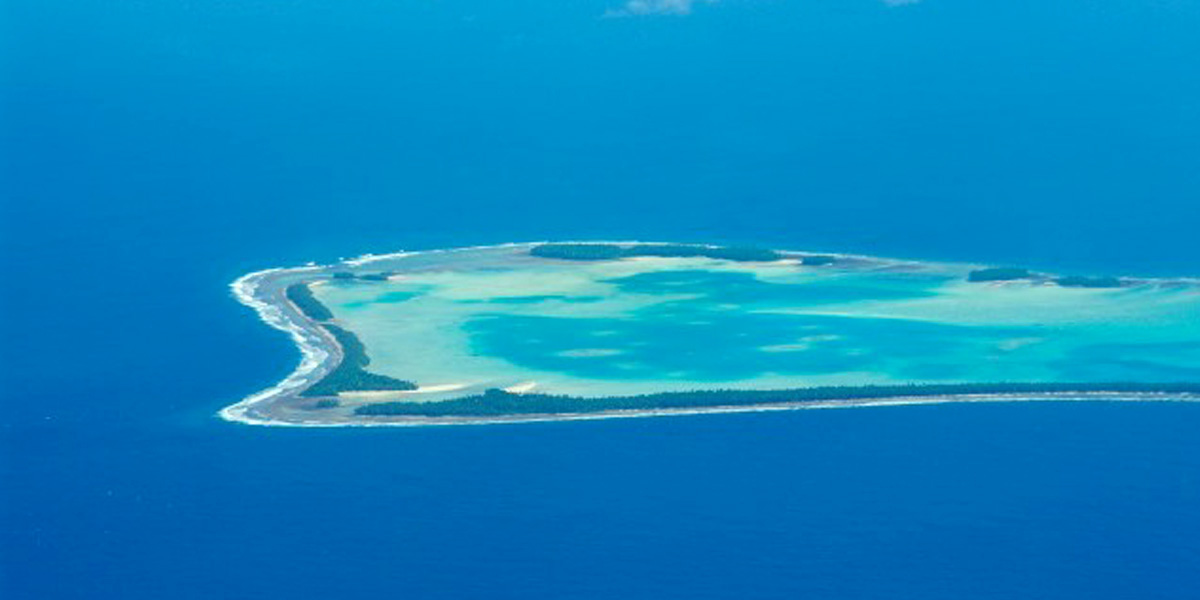

By Tim Radford
Even supposing the world does make dramatic reductions in carbon dioxide emissions, the fate of the small island states remains uncertain.
New research suggests that other, more short-lived greenhouse gases in the atmosphere could drive the thermal expansion of the oceans for centuries to come.
This is grim news for those low-lying coral atoll nations in the Pacific already threatened by sea level rise.
They fought at the Paris summit in 2015 for world agreement on a reduction of emissions that would keep global warming to 1.5 C above historic levels. But a new study, in the Proceedings of the National Academy of Sciences, suggests that may not be enough.
“If you think of countries like Tuvalu, which are barely above sea level, the question that is looming is how much we can emit before they are doomed. Are they already slated to go under, even if we stopped emitting everything tomorrow?” said Susan Solomon, professor of atmospheric chemistry at the Massachusetts Institute of Technology.
https://twitter.com/sierraclub/status/712740476080807936
Inevitable Rise
“It’s all the more reason why it’s important to understand how long climate changes will last and how much more sea-level rise is already locked in.”
Sea levels are rising as glaciers the world over retreat and Arctic ice caps melt, in response to rising carbon dioxide levels in the atmosphere, as humans burn fossil fuels.
But this time the MIT team applied their climate model not to carbon dioxide, but to the other greenhouse gases, among them methane and the chlorofluorocarbons. They then fed into the simulation the effect of heat on water, which expands with temperature.
And the short-lived gases are potent: the finding says that even if the production of these ceased entirely, at the end of 100 years three-fourths of the thermally-driven sea level rise would still be there, washing over low-lying coasts, drowning estuaries and river deltas, and seeping into the coral bedrock of islands too small even to register on the global climate maps.
And this slow enduring threat is what the small island states have feared most. They know that their citizens cannot survive if the sea levels rise to the heights predicted in the worst-case scenarios, but it isn’t clear where they could go to escape. They have already been warned that even the Paris Agreement may not be enough to save them.
Wow! World's First Floating City to Combat Rising Sea Levels https://t.co/EZjgXUkXS7 @ClimateReality @NRDC @sierraclub @greenpeaceusa @350
— EcoWatch (@EcoWatch) January 17, 2017
Carbon dioxide is an enduring molecule: even if emissions ceased now, the quantities already emitted will go on warming the world for another 1,000 years. So the effects of fossil fuel combustion are irreversible in the scales of human lifetimes.
But the new research shows that the short-lived gases have long-term consequences as well. Chlorofluorocarbons were banned by the Montreal Protocol nearly three decades ago: had the ban been delayed to 2050, then by 2100 they would have added 14 cms to the overall sea level rise, the authors calculate.
The scientists also tested methane in their simulation: suppose the world went on emitting at the current rate until 2050, 2100 or 2150 and then stopped completely?
In all three scenarios the methane cleared quickly and atmospheric warming slowed. But ocean warming continued for centuries and with it, sea level rise. And the later the emissions ceased, the longer the seas stayed high.
“Amazingly, a gas with a 10-year lifetime can actually cause enduring sea-level changes,” Prof. Solomon said. “So you don’t just get to stop emitting and have everything go back to a pre-industrial state. You are going to live with this for a very long time.”
Reposted with permission from our media associate Climate News Network.

 233k
233k  41k
41k  Subscribe
Subscribe 